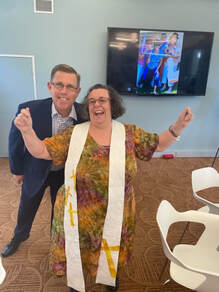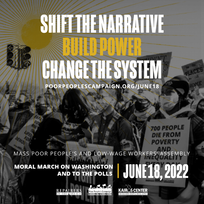 Fat white woman with dark hair in a pony tail, purple butterfly skirt, and purple cape walks briskly enough for the cape to fly a bit. (It's me posing for a picture after the race.) Fat white woman with dark hair in a pony tail, purple butterfly skirt, and purple cape walks briskly enough for the cape to fly a bit. (It's me posing for a picture after the race.) I failed. I'm not a failure, but I definitely failed. In 2017 I decided that I wanted to walk the Disney Half Marathon. I started a walking regime and soon was walking all over the place. My longest walks when I started were about half an hour, in May of 2019 I registered for my first 5k. I needed to be able to walk 13.1 miles by the first weekend in November. Disney requires a 16 minute mile to enter, but it was easy to simply lie about that on the registration form. I got so I could do a 5K in 50 minutes but I couldn't maintain the pace for a 10K. I walked longer and longer distances and set my goal clearly--I wanted to finish the race. People would laugh and say "well you don't want to be last" and I'd reply firmly, "nope, it's fine to be last, I just want to finish." Others said "you are an inspiration" and I'd say "I haven't actually done it yet." Race day I was off like I've never walked before. I hit a record for my 5k, and looked okay at 10k, and then I hit the wall. The balloon gals, they set the minimum pace, passed me and then I passed them. When they passed me again the bicyclists bringing up the rear checked in. "You need to speed up to stay in the race." "I can't go any faster." "Are you okay?" "Yes, I'm okay, I just can't move any faster." Just after the 15k mark I got on the bus and sobbed. I failed to finish the Disney Half Marathon. There is plenty of place for analysis and for figuring out if I can do it next time. People were comforting and helpful and encouraging, and I had a great time at Disney that afternoon (and until 1 in the morning!) My life was not ruined, or even slightly hurt by this experience. But that doesn't change the fact that I failed to hit my goal. And yet, almost everyone I meet tries to turn it around and say that I didn't fail. People tell me about how I succeeded at this similar thing or that, or that if the goal was different it could be reframed as a success. I walked more than 13 miles that day, all totaled. I walked 14 miles 2 weeks earlier. All that walking was good for me. Disney gives you the medal as you walk off the failure bus. Oh, and they don't call it a failure bus. What is it that makes it so hard to accept the idea that sometimes we fail? Why do we need to re-write a failed enterprise into a success story? What would it mean to accept that failure is always an option? In the church and in the world we are constantly encouraged to take risks, to try new things, to step out into new territory. At the same time all the stories we read and hear are about how successful the risk-taking has been. We imply that risk-taking leads to success. But if it is really a risk, then there is the possibility of failure. Right? Where is the risk if failure is not an option? Where are our stories of failure? Where do we grapple with how we feel in the failed moment, before the story is re-written into one of success? How are we teaching ourselves and those around us that failure is okay? After the Disney Half Marathon my sister pulled me aside privately. "I'm so proud of you. You tried something that had the potential of failure. I'm not sure we allow that very much, and you did it anyway." I still tear up with gratitude at her words. That was the compliment that mattered. I failed, and that is good. What have you failed at recently? How do you stumble through mistakes? I'd love to hear your stories of failure.
3 Comments
 Liz and Chris at Aunt Marion's Memorial Service this Spring. Liz and Chris at Aunt Marion's Memorial Service this Spring. I’m sitting in a hotel room getting ready to go to visiting hours at a funeral home. My cousin Chris has died and my family is doing what we do best—gathering to hold one another. This time, this memorial is a stop on my way to talk about ministry and mission and dinner and the Kin-dom of God. This has me thinking about endings, and about our goals in ministry. When a person is beloved, their death is a time to remember all the good they have done in our lives and in the world. When the person’s life is especially hard, we remember both their struggles and their successes. When someone has caused harm, similarly, the harm does not end with their death. All of this to say that death is not the end of the person. In Christianity, of course, we preach resurrection, which is important, but is not my point here. Instead I’m noticing the way that every bit of the life that Chris has lived is still part of our lives, still part of the world, still critical to who we are, who I am, to who we are as family. And because I’m headed next to talk about the Kin-dom of God I’m noticing how the people I’ve shared with at food pantries and meal programs, are still a part of who I am in God’s realm. Every death is a time for reflection on life, and every time I’ve had to grieve I learn—again and again—that the moments are what are important. This moment and that moment connect to create a theme, but the theme is nothing without that great specific story. And when I reflect on ministry with people who don’t have the material resources they need, I realize that the moments are important. We are pressured to make food pantries and meal programs into something that ends food insecurity. The reality is that these programs are simply bandaids—it takes systemic change to end food insecurity. That systemic work is essential in the same way that medical services to prevent early deaths are essential. But until food insecurity is ended, meal programs and food pantries are the moments in community when we come together, when we share what we have. If everyone is invited to volunteer, then we can share so many moments, so many stories, we can share so much of who we are with one another. Isn't that the Kin-dom, those moments we share? Each death reminds us that the moments are the point. The Kin-dom of God is at hand, here in this moment, if we take the time to work together, to eat together, to share our stories.  When I was in college my group of friends often quoted one of our “very funny” lines: “I know suffering builds character, but I’m already a character, I don’t need any more suffering.” We were talking about exams. (Insert eyeroll.) The outward privilege of my youth is somewhat embarrassing at the same time that my inward struggle with anxiety, suicidal thinking, and figuring out my sexuality remains a defining moment in my faith story. It was so hard to keep on moving forward, but God was there, never turning back. With work, I learned endurance. Paul insists that “suffering produces endurance, and endurance produces character, and character produces hope, and hope does not disappoint us” (Romans 5:3b-5a). I want to believe this, I preach this confidently, and I often cannot accept this. The fact is, sometimes suffering produces death, often suffering is so overwhelming that lives are destroyed. It is not-that-unusual for hope to disappoint us. Hope that says “it will all work out” is a very shallow hope, a dishonest hope, a disappointment. See the rest of this June 6 Devotional here. |
My ThoughtsFor my organized thoughts, see my book Five Loaves, Two Fish, Twelve Volunteers: Developing Relational Food Ministries. In this spot are thoughts that appear for a moment--about food programs, mission, church, building community, writing, and whatever else pops into my head. History
January 2024
Categories
All
|
 RSS Feed
RSS Feed